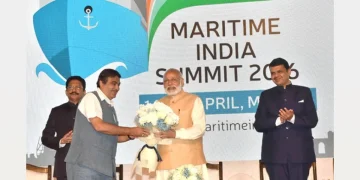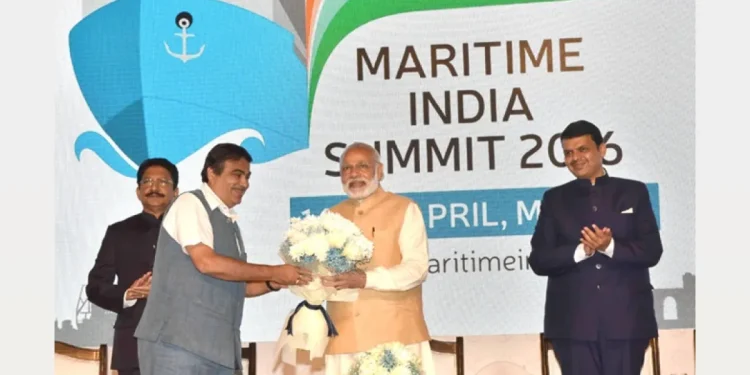By Rayan Amir – The Logistic News | March 5, 2025
India’s maritime sector is at a crucial juncture, with industry leaders emphasizing the need for increased private investment and advanced digital integration to drive sustainable growth. According to the Indian Chamber of Commerce (ICC), these two elements will be pivotal in enhancing port infrastructure, streamlining logistics, and ensuring India’s competitive edge in global trade.
Investment Surge Needed for Infrastructure Modernization
The ICC has highlighted the need for ₹3-4 lakh crore ($36-48 billion) in investment to modernize India’s port infrastructure and logistics networks. Abhyuday Jindal, President of the ICC, stressed that private sector involvement will not only bring in essential capital but also improve efficiency through innovation and advanced technology.
“The maritime sector is a cornerstone of India’s trade economy, handling over 75% of the country’s total trade volume. To remain competitive and unlock new opportunities, we need strategic investments from both public and private players,” Jindal stated.
Government Initiatives to Propel Maritime Expansion
To support this vision, the Indian government has launched several initiatives, including the Maritime Development Fund, which has allocated ₹25,000 crore ($3 billion) for sectoral improvements. Additionally, the PM Gati Shakti – National Master Plan is facilitating multi-modal connectivity by integrating key ministries such as Railways and Road Transport. This digital platform aims to ensure coordinated infrastructure planning and execution, reducing bottlenecks and improving supply chain efficiencies.
Digitalization: The Future of Indian Ports
Another key pillar of India’s maritime modernization is digital transformation. The Indian Ports Association (IPA) has partnered with the National e-Governance Division (NeGD) to integrate real-time data analytics, automation, and smart port management systems. This initiative will help reduce cargo dwell times, enhance supply chain predictability, and support sustainable logistics practices.
“The integration of digital solutions is no longer optional; it is a necessity. By leveraging AI, blockchain, and IoT-driven technologies, we can ensure seamless port operations and enhance global connectivity,” an IPA spokesperson remarked.
Economic Impact and Future Outlook
With the maritime sector being the backbone of India’s trade economy, experts believe that a well-integrated and digitally advanced logistics framework could propel India towards a $20 trillion economy by 2040. The ICC’s call for increased investment and rapid digital adoption underscores the urgency of modernizing the sector to keep pace with global trade demands.
As India continues to strengthen its position in the global logistics landscape, a collaborative approach between government agencies, private investors, and technology providers will be key to unlocking the full potential of the maritime sector.
For more industry insights and strategic updates on global logistics, stay tuned to The Logistic News.























